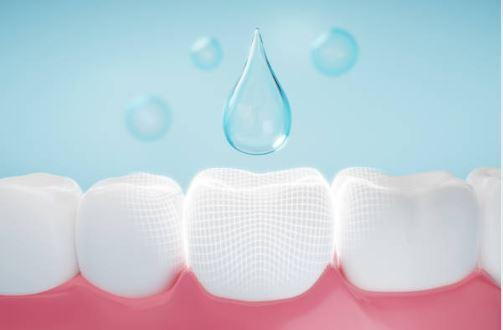
Fluoride: Facts and Myths
Fluoride is a topic that often sparks debate and controversy, with conflicting information circulating about its benefits and potential risks. As a common additive in toothpaste and drinking water, understanding the facts and dispelling the myths surrounding fluoride is essential for making informed decisions about dental health. In this blog post, we’ll explore the truths and misconceptions surrounding fluoride.
The Facts:
1. Dental Health Benefits: Fluoride is widely recognized for its role in preventing tooth decay and cavities. When applied to teeth, fluoride helps to strengthen enamel, making it more resistant to acid attacks from plaque bacteria and sugary foods. This ultimately reduces the risk for decay and promotes oral health.
2. Community Water Fluoridation: One if the most significant public health achievements of the 20th century was the introduction of community water fluoridation. Adding fluoride to the public water supplies at optimal levels has been shown to significantly decrease the incidence of tooth decay across entire populations, regardless of socioeconomic status.
3. Topical Fluoride Applications: In addition to water fluoridation, fluoride is commonly included in dental products such as toothpaste, mouthwash, and professional fluoride treatments. These topical applications provide additional protection against cavities by delivering fluoride directly to the teeth’s surface.
4. Safe and Effective: When used as directed, fluoride is considered safe and effective for preventing tooth decay. Numerous scientific studies and extensive research support the benefits of fluoride in maintaining good oral health.
The Myths:
1. Fluoride Causes Health Problems: One of the most persistent myths surrounding fluoride is that it causes a range of health problems, including cancer, bone fractures, and neurological disorders. However, the vast majority of scientific evidence does not support these claims. Multiple reputable health organizations, including the American Dental Association and the World Health Organization, affirm the safety of fluoride when used appropriately.
2. Fluoride is Toxic: While it’s true that excessive fluoride intake can lead to fluorosis, a condition characterized by white spots or streaks on the teeth, the levels of fluoride found in drinking water and dental products are well below the threshold for toxicity. The amount of fluoride added to public water supplies is carefully regulated to ensure it remains within safe limits.
3. Natural Fluoride is Sufficient: Some argue that fluoride occurs naturally in water sources and therefore additional fluoride exposure is unnecessary. While it’s true that natural fluoride levels vary depending on geological factors, the concentrations found in most natural water sources are typically insufficient to provide dental benefits. Community water fluoridation supplements existing fluoride levels to achieve optimal dental health benefits. In addition, bottled water generally has significantly less fluoride than community water supplies making it more important for individuals who solely drink bottled water to supplement their fluoride intake.
4. Alternative Tooth Decay Prevention: Critics of fluoride often suggest alternative methods for preventing tooth decay, such as improving oral hygiene practices or dietary changes. While these measures are undoubtedly important for maintaining oral health, they are not substitutes for proven benefits of fluoride in preventing cavities. Fluoride complements good oral hygiene habits and provides an additional layer of protection against tooth decay.
In conclusion, fluoride remains a valuable tool in the fight against tooth decay and cavities. By understanding the facts and dispelling the myths surrounding fluoride, individuals can make informed decisions about their dental care and take proactive steps to maintain optimal oral health. Community water fluoridation, combined with regular dental visits and proper oral hygiene practices, remains one of the most effective strategies for preventing tooth decay and promoting overall dental wellness.
